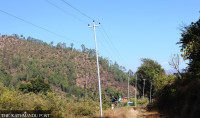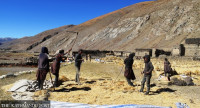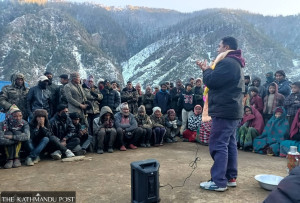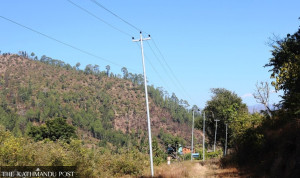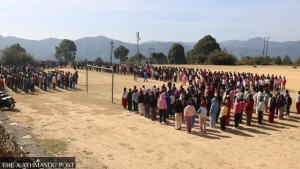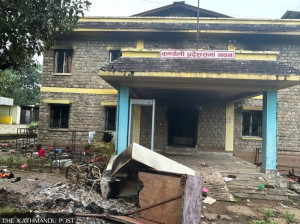Karnali Province
Upper Dolpa residents struggle to make ends meet as Tibet border remains shut
Locals of Dolpobuddha, Sheyphoksundo, and Chharkatangsong pay a hefty price for goods transported on mules.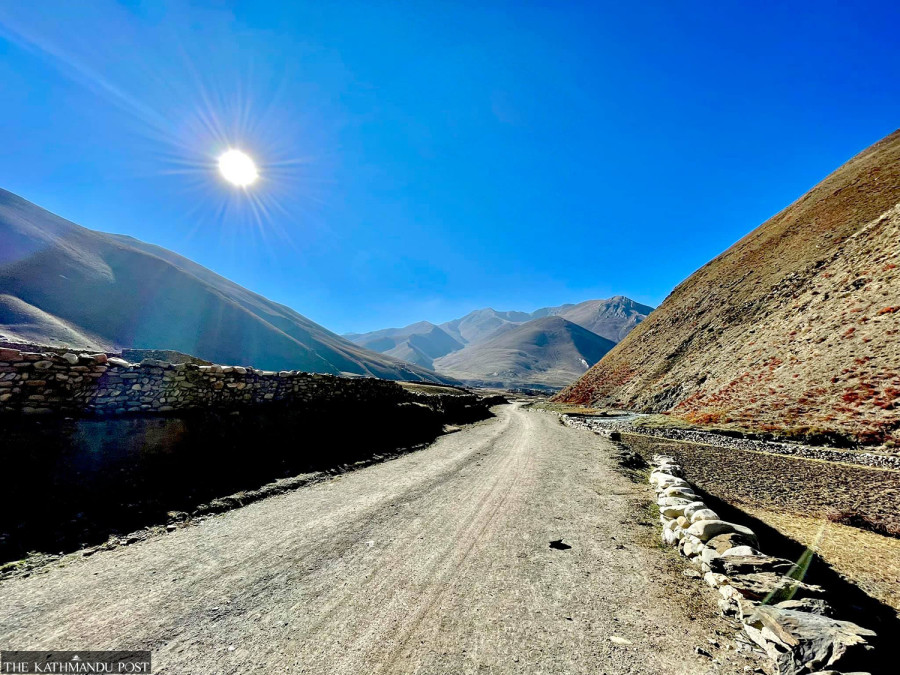
Tripti Shahi
Karma Lama, a resident of Dolpobuddha Rural Municipality Ward 3, in the upper Dolpa region recently bought a 30kg bag of rice at Rs4,500. The same bag of rice would cost him Rs1,500 in Dunai, the district headquarters.
The locals of Dolpobuddha, Sheyphoksundo, and Chharkatangsong rural municipalities in upper Dolpa pay a hefty price for goods and commodities transported to the remote areas on mules. The lack of road connectivity adds to the cost of the goods and commodities that reach these villages after three days of travel on mules, says Lama. “The local traders use mules to bring goods to the villages through narrow foot trails,” he said. “So they sell the goods, even food grains, at double the price. Sometimes the transportation charge alone for a 30 kg bag of rice could go up to Rs3,000.”
“It takes three days to reach Dunai from Dolpobuddha and three days to return. Due to the extreme cold and high altitude, people can grow and harvest only one seasonal crop here which only lasts for three to four months. The rest of the year we are dependent on what’s brought to the villages by local traders,” said Lama.
According to Lama, the past four years have proved difficult for them after China closed the Tibet border during the Covid pandemic.
“Due to a lack of irrigation and extreme weather, the locals of upper Dolpa are solely dependent on transported rice. Earlier, the rice used to be transported via China also on mules as the district is not connected to road networks,” said Lama. “The last couple of years we have had to buy rice at an extremely high price.”
According to Senang Gurung, the chairman of Chharkatangsong Rural Municipality, Marim and Kyato are the two border points that connect Dolpa to Tibet, but since China has not opened the border, the residents of upper Dolpa are struggling to afford food grains and other essentials.
Before the Covid pandemic, the locals would go to the border area to buy daily essentials since it is only a day’s journey to the border while it takes three days to reach the district headquarters. “The goods from China used to cost less than those from Dunai due to the higher transportation costs on the Nepali side,” said Gurung. “The border closure has also affected the income of the locals. Earlier they would take their dairy produce and local herbs to sell in the Chinese market but they haven’t been able to do so in the past four years since the pandemic.”
According to Dorje Tsering Gurung of Sheyphoksundo Rural Municipality-3, after the Nepal-China border was closed, the local farmers are struggling to find buyers for their produce.
“So many farmers, including me, are in debt. We have been taking loans from money lenders and the debt is piling up,” said Dorje. “When the Chinese border was open, we used to buy all the necessary food crops, enough to last for a year, and we also made money selling herbs there.”
The locals have to pay more not only for rice but also for salt, oil and flour. “One packet of salt which costs Rs10 in Dunai costs Rs100 here. We pay Rs300 transportation cost plus the market price for oil,” said Dorje. “Locals cannot buy goods in bulk due to the high prices and low income these days. The transportation charges increase further during the winter and rainy season.”
A food depot has been established by the Food Management and Trading Company (FMTC) in Dho village in Dolpobuddha Rural Municipality for the benefit of the locals, but subsidised rice is transported only once a year during the Dashain festival.
Pema Wangchen Gurung, deputy chairman of Sheyphoksundo Rural Municipality, said that the FMTC has set the Dashain festival rice quota at 1,500 quintals for the residents of three rural municipalities.
“The residents of upper Dolpa are facing food insecurity. The subsidised rice sent around October by the FMTC barely lasts a week. It would be very convenient for the locals if China opened the border. There is no income for the locals since they haven’t been able to do business in the Chinese market,” said Pema. “It has been more than three years of suffering, and still the federal government has not found any way to provide us with food crops or request China to open the border.” According to him, the local government has reached out to the concerned authorities with their requests but has not received any help.




 9.12°C Kathmandu
9.12°C Kathmandu



